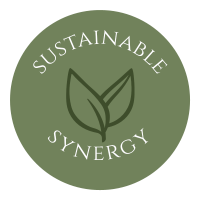2
@upcyclecollective_ on Instagram
Coming from a small town, I feel as though I’ve developed a level of curiosity towards smaller, local businesses run by people around my age.
Something about seeing people in my generation becoming self starters for all the right reasons always piques my interest. One of the more prominent reasons I have begun venturing into sustainability writing is to be able to promote and support these businesses in and through my own words Upcycle Clothing Collective caught my eye one day earlier this fall, scrolling through my Instagram explore page. I recognized the owner and founder as a mutual friend through my childhood days of figure skating, and I reached out to hear more on her story and journey up until now.
Immersed for most of her life in the world of individual sport, Mackenzie Wavryk always knew she wanted to work for herself. Her long-time personal passion for vintage clothing and keen eye for ornate and rare pieces is one of the key contributing factors to the success of the now up-and-running business. Recognizing her home Victoria, BC as a hub for the vintage clothing market she sold and repurposed much of her own clothing for many years before Upcycle. Years later, an operation that once began as a pop-up garage sale has now blossomed into a haven for vintage and middle-class consignment accessible to all, nestled into the prime real estate of Fort Street.
“Fashion is something that’s so recycled, from trends, to seasons, to just growing out of clothes,” she said when I asked about Upcycles’ sustainability-focused mission statement. Most of the economic growth in the global fast-fashion industry is generated from our societies relentless pressure on individuals to express themselves, and their social status, through apparel. Our seasonal ‘wardrobe updates’ and ‘spring cleaning’ have been so normalized, unfortunately contributing on a momentous level to the social inequity existing in offshore mass production factories, exploiting marginalized populations for cheap labour. Upon learning about the consignment industry, Mackenzie envisioned a space that celebrated fashion in an ethical and socially sustainable way. Encouraging people to donate their used apparel with the incentive of earning back a portion of the price it is re-sold at has been a cornerstone of success for her and her partners at Upcycle.
Disincentivizing people from donating to places like Value Village was another key driving factor for Mackenzie. Honestly, I didn’t know much about the controversies behind the corporate-giant owned consignment operation, however our conversation inspired me to further educate myself. Value Village, owned by the Walmart corporation, is an ethical nightmare. They operate under the guise of protecting the planet providing affordable consignment. They donate less than 17% of proceeds to charity, not to mention selling brand new clothing and materials sourced from offshoring.
In terms of social equity, Upcycle Clothing Collective’s store front markets gender-neutral fashion and provides a safe setting for any person of any identity to feel welcome to both donate and browse. “I wanted to create a place for anybody to bring clothing and find clothing”, providing accessibility to used, chic pieces with reasonable price points. Anything that does not sell off the rack at Upcycle is directly donated to either Our Place Society or the Victoria Cool Aid Society shelter. Every item of clothing ends up on the back of someone who needs it, embodying circular economy and zero waste principles while also providing support to Victoria’s homeless population.
After chatting with Mackenzie, I realized that social sustainability is an aspect that I often overlook when thinking about how to live and think ‘sustainably’. So much of what I’ve learnt throughout my degree and spent time researching has been environment-centered, and focused primarily on natural resource management. Understanding Upcycle as a brand promoting the circular economy of fashion in a way that is accessible to all human demographics has certainly opened my eyes to the importance of social equity in considering the changes to be made in working towards more sustainable communities.
Please check out Mackenzie’s website and Instagram linked below and support Upcycle Clothing Collective in their mission to slow fast fashion and encourage curated consignment.


